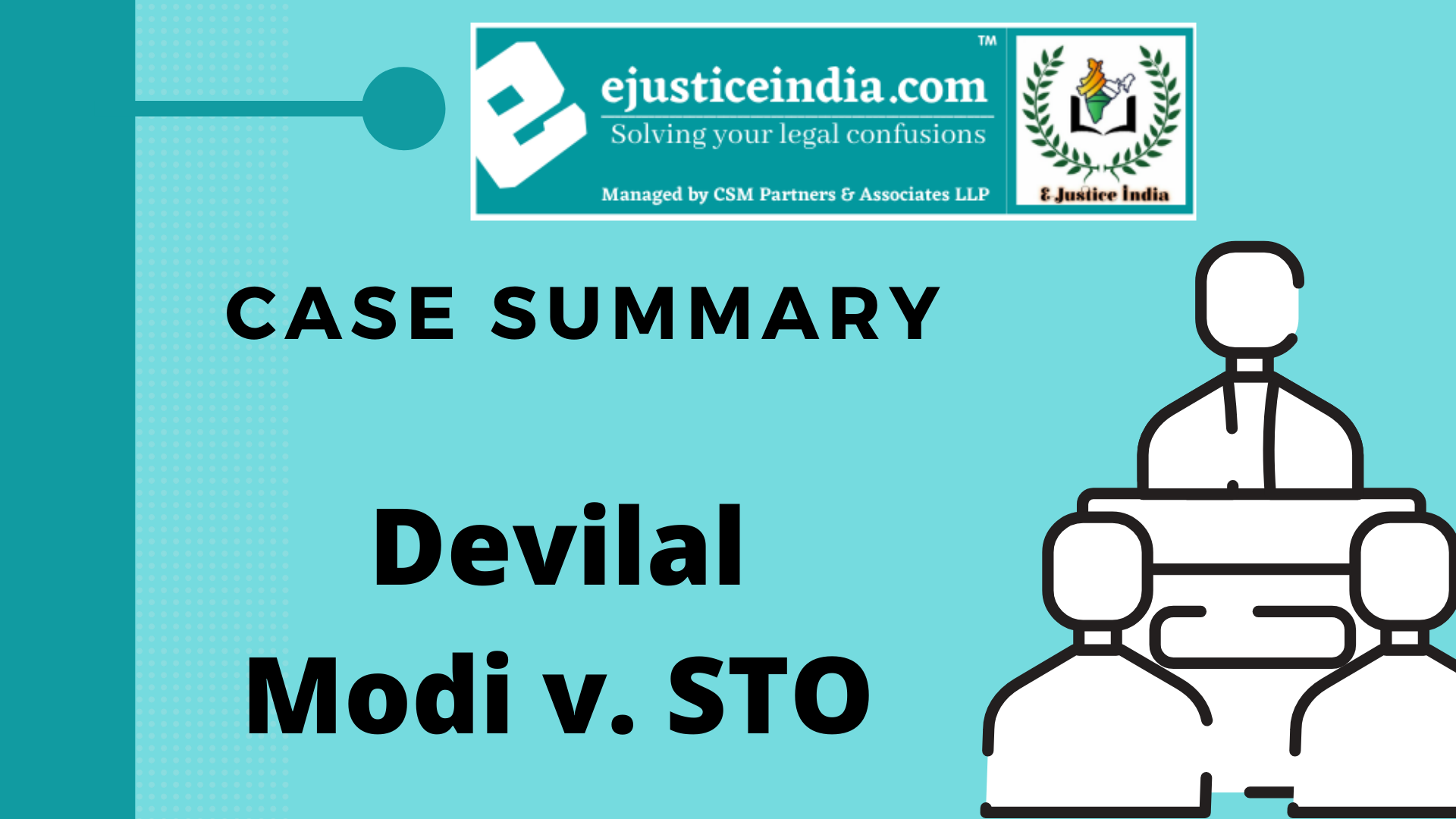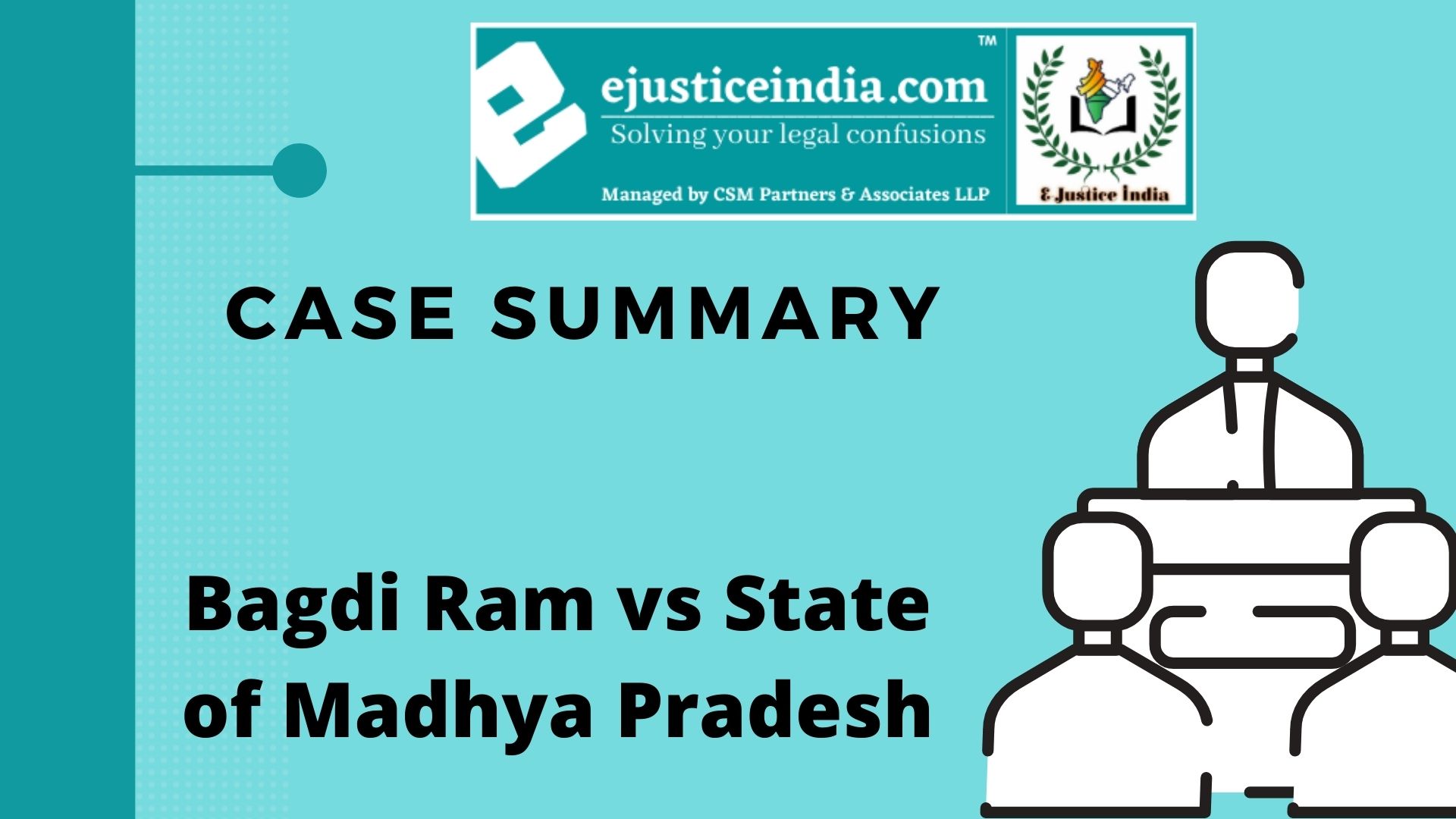Case Summary: Amrutlal Liladharbhai Kotak & Ors. Vs State of Gujarat
Author: Ishita Arora
Citation
(2015) 4 SCC 452 (SC)
Bench
Justice M.Y. Eqbal and Justice Pinaki Chandra Ghose.
Introduction
In the present case, a Special Leave Petition under Article 136 of the Indian Constitution was filed by the appellant against the order of High Court which upheld the sentence awarded by the Trial Court. In this case, the Supreme Court held that certain criteria with regard to establishment of guilt in the cases of dowry death. The first criterion being that the suicide must have been committed within seven years of marriage. The second criterion is that the husband or some relative of the husband had subjected the victim to cruelty, which led to the commission of suicide by the victim. This is when Section 113A of the Indian Evidence Act indicates that in such circumstances, the Court may presume, having regard to all the circumstances of the case, that such suicide has been abetted by her husband or by such relative of her husband. In the present case, both the above mentioned criteria have been satisfied.
Facts of the Case
The facts of the case state that the bride died by hanging from the fan within four years of marriage. The appellants were not present in the house when the bride died. The body of the deceased was taken off the fan and sent for post-mortem examination. After the registration of the complaint against the appellants by the father of the deceased, an arrest warrant was issued by the concerned Judicial Magistrate on report filed by the Investigating Officer under Section 70 Cr.P.C, but the appellants were untraceable. They were absconding for a period of thirty six days. The testimonies and statements of father, relatives and friends were taken. The father of the deceased agreed that the appellants had demanded dowry several times in the past. The witnesses stated that the deceased used to complain about the mental torture and harassment frequently meted out to her by the accused due to the insufficient dowry provided during the marriage. The High Court said that the evidence of witnesses clearly establishes that the appellants were greedy people, who had started to demand dowry right from the date of marriage. The High Court thus upheld the ultimate conclusion and the resultant order of conviction recorded by the Trial Court. Now, the present Special Leave Petition under Article 136 was filed by the appellant against the order of High Court.
Issues and facts of law
1. Whether the appellants can be convicted for the suicide committed by the bride under section 498A, 304B and 306 read with section 114 of IPC and sentenced accordingly?
Judgement
The appeal was dismissed stating that in the present case deceased died within seven years of marriage and with the version of the witnesses, it has been further proved that there was cruelty meted out to the deceased immediately before her unfortunate death. So, there is a reasonable apprehension of the crime committed by the accused. Hence, the decision of High Court was upheld.


